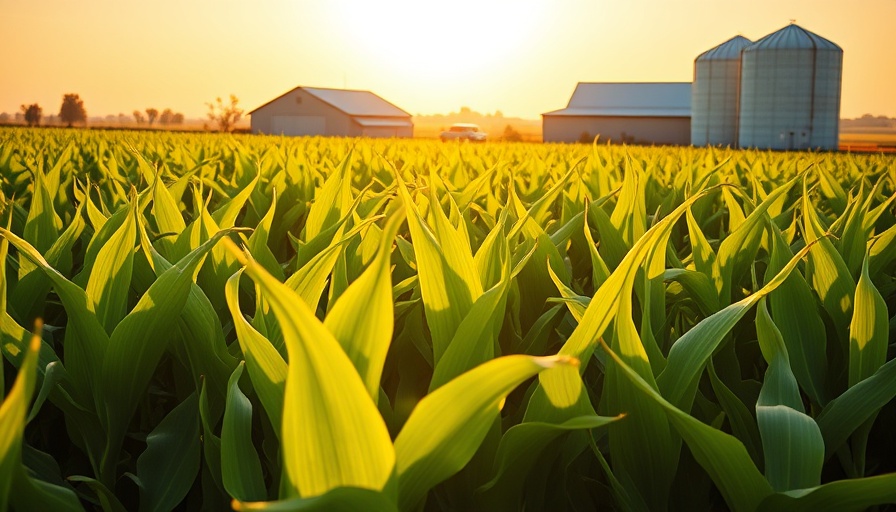
Climate Change: A Growing Concern for Corn Farmers
Farmers like Robb Rynd are witnessing the impacts of climate variability firsthand. With over 200 acres dedicated to corn, soybeans, wheat, and sorghum, this farming venture has faced significant challenges this season. Unlike last year, which brought bountiful yields, this year presents a challenge unlike any other. Rynd, constantly on the lookout for signs of distress among his crops, reflects on the stark difference: "It’s almost kind of depressing... to look at it and say, ‘oh yep, it does look bad.'" It’s a sentiment echoed by many across the Midwest, where climate change has made every growing season a precarious gamble.
The Unpredictable Nature of Extreme Weather
Across major corn-growing states, farmers are grappling with the consequences of climate change. Persistent high temperatures, unexpected droughts, and heavy rains at inopportune times create a perfect storm for disruption. According to a report by Climate Central, human-influenced climate change has steadily increased extreme heat occurrences, which are becoming more commonplace each year. “The hot nights too, like the corn’s never getting a break,” says Rynd, capturing how relentless heat can sap strength from both crops and farmers alike.
Understanding the Impact on Pollination
The process of corn pollination, critical for a successful yield, is interrupted by excessive heat. Mark Licht, an agronomy professor, points out that high temperatures can cause tassels—the pollen-shedding part of the corn plant—to wrap too tightly due to rapid growth. This creates a situation where less pollen is released, leading to uneven or patchy corn ears. Cases of this tassel wrapping phenomenon have surged in recent years, marking a troubling trend for farmers, particularly in areas where weather conditions have become increasingly erratic.
Emotional Toll on Farmers
With every season, farmers invest their hopes and energy into the land and their crops. The emotional weight of witnessing the negative effects of climate change can be overwhelming. For Rynd, each failed kernel represents not just a loss in yield, but a decline in spirit. “It’s just hot all the time,” he expresses, a sentiment that resonates with many who feel the pressures of agriculture amid an uncertain climate future.
The Future of Farming Amid Climate Change
Despite the trials faced, Rynd acknowledges that effective management and innovative practices can make a difference. With some areas benefiting from late-season weather that could yield record crops, the resilience of farmers shines through. As agricultural techniques evolve along with weather patterns, it becomes crucial to establish strategies that not only combat current challenges but anticipate future conditions. The integration of technologies can provide solutions such as enhancing irrigation systems, developing resilient crop varieties, and utilizing predictive analytics for better planning.
As discussions around climate variability continue, it’s imperative that farmers and the wider community recognize the importance of supporting initiatives that foster sustainable agricultural practices. Farmers are not just key players in the food supply but vital custodians of the land.
In this light, if you are part of the agricultural community or simply someone who cares about the future of farming, understanding the implications of climate change is essential. Together, we can advocate for informed changes that might help cushion against these rising challenges.
If you're looking for ways to safeguard your family's future in times of uncertainty, consider exploring options like final expense insurance to protect what matters most. Check out available plans that can offer peace of mind during this crucial time.
 Add Row
Add Row  Add
Add 




Write A Comment